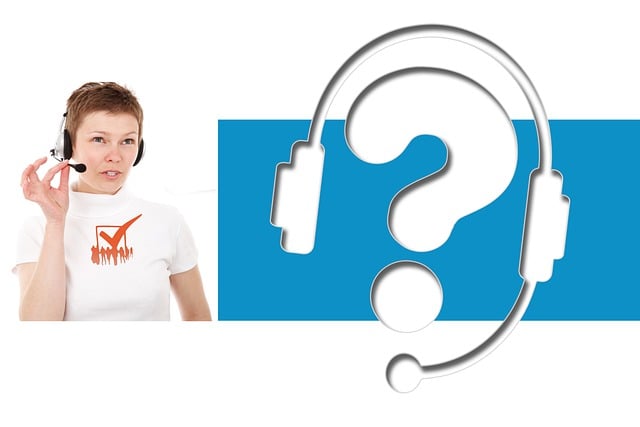HIPAA standards are vital for protecting patient data in the digital healthcare landscape, especially within call centers handling high volumes of sensitive information. Call centers ensure confidentiality through robust security measures like encryption, access controls, and employee training. By adhering to HIPAA regulations, these centers safeguard patient trust, avoid legal repercussions, and foster a culture of trust in medical data management, ultimately enhancing healthcare provider reputation and patient care. Implementing comprehensive training, regular updates, and advanced security technologies is key to maintaining proficient compliance.
In today’s digital age, patient data security is paramount within the healthcare industry. HIPAA standards serve as a cornerstone for safeguarding sensitive information shared between healthcare providers and patients. This article explores the critical role of healthcare compliance call centers in meeting these stringent regulations. We delve into the challenges of ensuring data privacy in such environments and highlight essential features required for compliance. Learn how secure communication protocols and robust staff training foster patient trust, enhancing the overall healthcare experience.
- Understanding HIPAA Standards and Their Relevance in Healthcare
- Challenges of Ensuring Data Privacy in Call Centers
- Essential Features of a Compliant Healthcare Call Center
- Secure Communication Protocols for Patient Protection
- Best Practices for Training Staff on HIPAA Compliance
- Benefits and Impact on Healthcare Providers' Trust
Understanding HIPAA Standards and Their Relevance in Healthcare

HIPAA standards are a cornerstone of healthcare compliance, ensuring patient confidentiality and the secure handling of medical data. These regulations are designed to protect sensitive health information, such as personal details, diagnostic records, and treatment plans, which are integral to patients’ privacy. In the digital age, where healthcare data is increasingly shared electronically, adhering to these standards is more critical than ever.
Healthcare providers and their associated call centers must implement stringent security measures to safeguard patient confidentiality services. This includes securing physical and digital access to records, encrypting sensitive data, and ensuring clinic communication remains private. By embracing these practices, healthcare organizations can maintain the trust of their patients and avoid legal repercussions related to medical data privacy breaches.
Challenges of Ensuring Data Privacy in Call Centers

Ensuring data privacy in call centers is a complex task, especially within the healthcare industry where compliance with stringent regulations like HIPAA is paramount. Call centers handling protected health information (PHI) face unique challenges in securing sensitive patient details during every interaction. One of the primary hurdles is balancing the need for efficient communication with maintaining strict confidentiality. Agents must be trained to handle PHI discreetly, adhering to protocols that include secure data storage, encryption, and access controls.
Moreover, as call centers manage high volumes of calls, implementing robust security measures while keeping up with demand can be difficult. This includes ensuring that all software and systems used are HIPAA-compliant, regularly updating security protocols to counter emerging threats, and continuously training staff on privacy best practices. A reliable healthcare compliance call center overcomes these challenges by adopting a comprehensive HIPAA support system that integrates seamlessly into the existing workflow, enabling secure clinic communication while upholding the highest standards of data protection.
Essential Features of a Compliant Healthcare Call Center

In the realm of healthcare, where patient confidentiality is paramount, a compliant call center becomes an indispensable pillar for secure clinic communication. To ensure patient information remains protected, these specialized centers must incorporate robust security measures and adhere to stringent regulations, particularly HIPAA (Health Insurance Portability and Accountability Act). Essential features include encrypted data transmission, role-based access controls, and comprehensive employee training on privacy protocols. With these in place, healthcare providers can trust that their sensitive conversations and records are safeguarded.
Beyond basic compliance, top-tier call centers offer patient confidentiality services, enhancing the overall security ecosystem. This involves implementing advanced encryption technologies, multi-factor authentication, and regular system audits to identify and mitigate potential risks. As a result, healthcare organizations gain peace of mind, knowing their communication channels align with the highest standards of HIPAA support systems, fostering a culture of trust and integrity in patient data management.
Secure Communication Protocols for Patient Protection

In the realm of healthcare compliance call centers, securing patient information is paramount. To ensure medical data privacy, these specialized centers adhere to strict protocols, including encryption for all digital communications and secure voice channels. This HIPAA support system involves implementing robust access controls, regular staff training on data protection best practices, and meticulous documentation procedures to safeguard sensitive patient records.
Furthermore, call center agents are equipped with the knowledge to navigate complex medical data privacy regulations, facilitating secure clinic communication at every touchpoint. By prioritizing these measures, healthcare providers can trust that their patients’ information is protected, fostering a robust and trustworthy relationship between patients and care teams.
Best Practices for Training Staff on HIPAA Compliance

To ensure staff are proficient in HIPAA compliance within a healthcare call center environment, several best practices should be implemented. Firstly, comprehensive training sessions that cover all aspects of HIPAA regulations and their practical applications are essential. These sessions must include detailed explanations of patient confidentiality services, medical data privacy protocols, and the specific do’s and don’ts related to secure clinic communication. Regular updates on any changes in HIPAA standards are equally vital to keep staff informed and adaptable.
Secondly, interactive workshops focused on role-playing scenarios can significantly enhance learning. These scenarios should mimic real-world challenges, enabling staff to apply their knowledge practically. Encouraging open discussions about potential HIPAA violations and their resolutions further reinforces a culture of awareness and accountability. Regular assessments and refresher courses are also beneficial in maintaining high standards of healthcare compliance call center operations.
Benefits and Impact on Healthcare Providers' Trust

The implementation of healthcare compliance call centers equipped to meet stringent HIPAA standards offers significant advantages for healthcare providers, fostering trust and ensuring patient confidentiality. These specialized centers play a vital role in securing sensitive medical data privacy, which is a primary concern for patients and practitioners alike. By adopting these services, clinics and hospitals can mitigate risks associated with unauthorized access or breaches of patient information, thereby enhancing their reputation and compliance standing.
The impact on healthcare providers’ trust is profound, as it enables them to communicate securely and maintain the integrity of patient records. With strict HIPAA adherence, medical professionals can be assured that their interactions are confidential, promoting open dialogue and better patient care. This level of protection not only facilitates seamless information exchange but also instills confidence in patients who share personal health details, knowing their privacy is protected.
